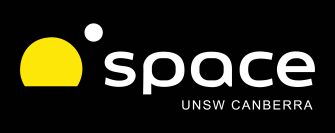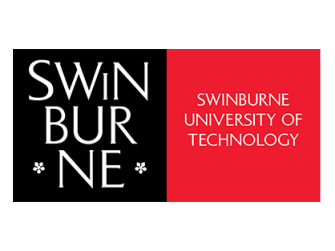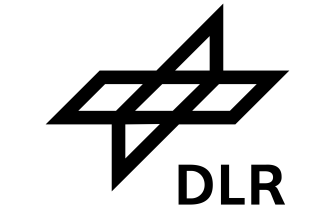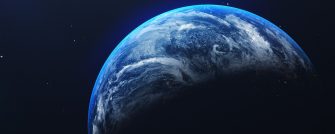
UNSW Canberra Space Workshop | 18 - 20 February, 2025
International Remote Sensing and Space Instrumentation
Overview
This workshop provides an overview of the space instruments that capture Earth Observation (EO) data and how missions are designed and managed. Participants will gain an understanding of the remote sensing and space situational awareness industries and use cases, key space instrumentation technologies, the major considerations of what goes into planning and running a remote sensing mission, and space situational awareness.
Presentations from international remote sensing experts will leverage decades of experience launching dozens of successful remote sensing spacecraft to describe technical, business and management requirements.
Workshop content
TUESDAY, 18TH FEBRUARY
Day 1
- Global space industry ecosystem
- Space instrumentation key technologies & applications
- Orbital dynamics and spacecraft operations
- Space situational awareness
WEDNESDAY, 19TH FEBRUARY
Day 2
- Project management and systems engineering for remote sensing missions
- Space domain awareness (UNSW)
- Remote sensing mission design
- Remote sensing case studies from industry and university Satellite programs
THURSDAY, 20TH FEBRUARY
Day 3
- Remote Sensing mission planning workshop
- Interactive panel discussion

Registrations close Wednesday 12th of February 2025
Confirm your attendance
Registrations close Wednesday 12th of February 2025
Register now opens in a new windowSpeakers
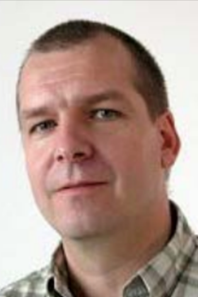

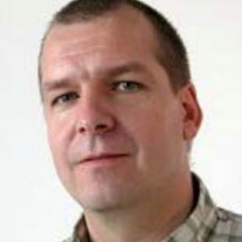
Dr. Andreas Eckhardt
Dr. Andreas Eckhardt obtained his doctorate PhD (Dr.-Ing.) at TU Berlin in 2002. In 2004 he began his work as Head of the Department Optical Sensors and Electronics. With 35 years of experience working for the DLR, a global player and Research Center for Aeronautics and Space with 10.000 employees, Dr. Andreas Eckhardt is a true expert in the field of Optical Sensor and Electronics and further aerospace-related fields.
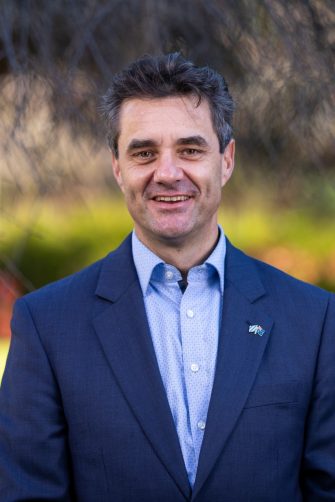

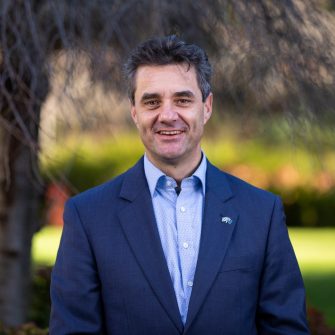
Prof. Peter Moar
Prof. Peter Moar has worked on numerous space instrumentation missions as a part of his ongoing 16 year collaboration with the German Aerospace Centre (DLR). Between 2015 to 2018 he and his team secured and delivered mission critical capability for the German Aerospace Centre’s (DLR) Earth Sensing Imaging Spectrometer (DESIS) global space 2.0 instrumentation mission.
Peter has over 24 years experience in international technology design, research and consulting from establishing global start up companies to streamlining global fortune 500 companies operations to bring complex products from design to mass manufacture.
He has delivered on numerous successful commercial and research projects with his network of international corporate and research partners with a focus on Industrie 4.0 applications in the automotive, space, and telecommunications sectors.
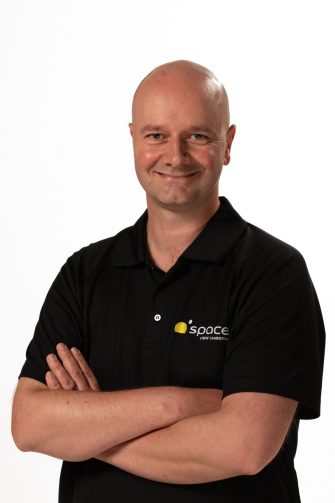

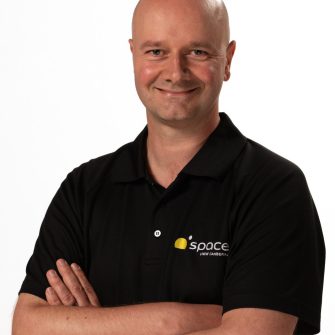
Dr. Melrose Brown
Dr Melrose Brown is a senior lecturer and Space Program Coordinator at UNSW Canberra. In this role, he leads the M2 space mission comprised of two interacting 6U cubesats. His current research aims to apply coupling of high fidelity numerical simulations with ground and flight test to study the complex interaction between satellites and the space environment. He conducts research into the modelling and simulation of space vehicles in low earth orbit, develops orbit propagation and determination methods and techniques, space weather modelling and hypersonic fluid dynamics. He has been responsible for the numerical simulation and analysis of hypersonic flight vehicles including involvement with the vehicle's design, construction, testing and launch. Dr Brown holds a Masters and Doctor of Philosophy degrees in Aerospace Engineering.
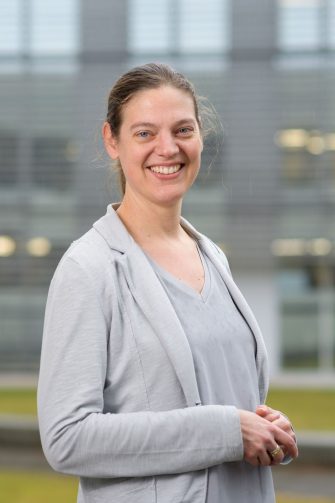

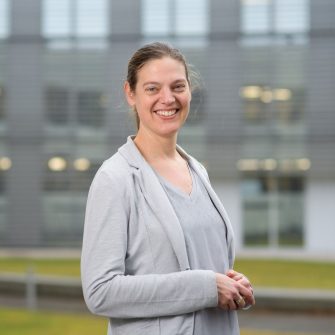
Prof. Sabine Klinkner
After graduation from the University of Stuttgart in Aerospace Engineering in 2002, Sabine Klinkner worked with the space SME company von Hoerner & Sulger GmbH, focussing on the development of robotic space systems and the design of flight hardware developments, for missions such as ROKVISS, ExoMars, BepiColmbo, Euclid. From 2004-2008 she pursued her Ph.D. at the University of Stuttgart in parallel to her work in industry in the field of highly integrated robotic systems for planetary exploration. Since January 2015 Ms. Klinkner holds the chair of satellite technology at the University of Stuttgart’s Institute of Space Systems. In her department she takes care of the research fields satellite technologies, exploration robotics and dust astronomy. The research group Satellite Technologies develops new technologies and satellite systems, which are also operated at the University of Stuttgart. Sabine Klinkner took care of launch and operation of the small satellite Flying Laptop for Earth observation and technology demonstration and prepared and conducted the follow- on missions EIVE, a 6U E-Band CubeSat EIVE as well as the two upcoming missions, the educational 3U CubeSat SOURCE and the ROMEO mission reaching into the Medium Earth Orbit. In the field of exploration robotics, the research activities include the development of a Microrover systems and enabling technologies as well as Regolith mitigation technics. The working group Dust astronomy simulates interstellar dust and develops and operates of instruments for in-situ analyses such as the Destiny+ Dust Analyzer for the JAXA mission Destiny+.
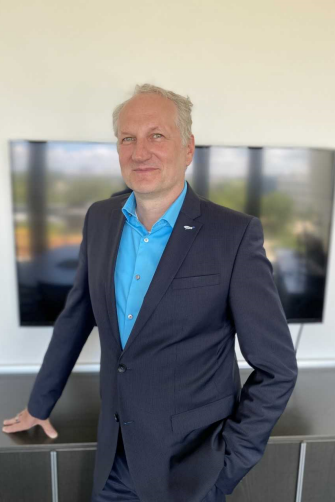

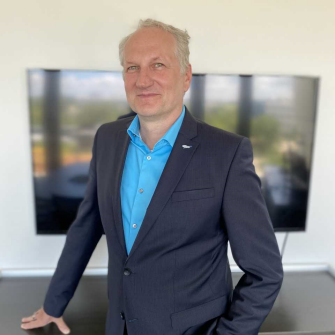
Dr. Timo Stuffler
Dr. Timo Stuffler started his career in 1993 at Kayser-Threde with a PhD in physics and worked as a project and system engineer in mostly scientific satellite-born payload projects like XMM-Newton, Integral, Plasma Crystal or PACS/Herschel. He then changed to lead the Business Development at Kayser-Threde a company that grew from 170 to nearly 400 employees between 2000 and 2014. After the merge of Kayser-Threde and OHB System AG in September 2014, he took the position of Director Business Development at OHB-System; a company with 3,000 employees within the group and a yearly turnover > 1 billion Euros. Beside interests in all aspects of space, he has a focus for technologies being a key factor for successful space projects.
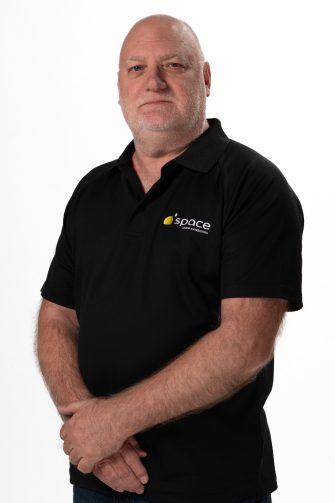

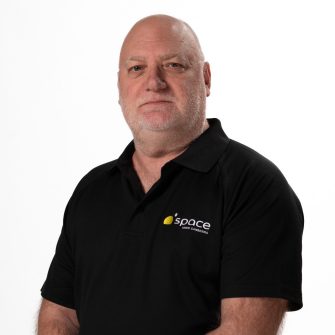
Mr Michael McKinnell
Mr Michael McKinnell has an engineering degree in Electronics from the University of Western Australia and has worked in the European Space Industry for over 23 years. Prior to that experience he had over 11 years military operations and systems engineering experience in the Royal Australian Air Force (RAAF), achieving the rank of Squadron Leader.
He has a strong background in developing and supporting mission-critical space systems and has held various roles in a variety of European space missions ranging from meteorological programmes to Earth Observation and deep space astrophysics missions. He has worked across the full lifecycle of space mission development and operations (Phases A to E), and participated in many system level test, operations, project and design reviews. He has also gained experience working with a variety of international organisations including ESA, the Japanese Space Exploration Agency (JAXA), EUMETSAT, CNES, NASA, NOAA and joint Australian / US military space operations.
In September 2022 Mr McKinnell was appointed to the position of Manager of the Australian National Concurrent Design Facility at the University of New South Wales in Canberra. This advanced CDF capability provides essential national support for the development of Australia's emerging sovereign space industry.
Learning outcomes
On successful completion of this course, participants will be able to:

Discuss the current state and future direction of the remote sensing satellite industry

Describe the key technologies of Earth Observation data capture, including sensors, on-board data processing, transmission, and calibration

Outline fundamental space project management and space systems engineering processes

Explain basic orbits and their uses

Identify the key failure points of remote sensing missions and the requirements for success
Who should attend
The learner audience will come from a wide cross-section of industry, government, defence, and personal interest backgrounds who want to understand the remote sensing and space situational awareness industry ecosystems, key concepts and technologies, and what’s involved in planning and running a remote sensing mission.
Interactive panel discussions with industry experts will allow industry practitioners or those wanting to enter the industry the chance to workshop concepts, helping to avoid potentially costly or time-consuming pitfalls.
End users of earth observation data who want to gain a better understanding of how that data is acquired and the downstream implications should consider attending.
This course does not require any in-depth domain knowledge, but some sessions will call upon technical reasoning skills and introduce concepts from computing, electronics or physical sciences.
Schedule
- Tuesday
- Wednesday
- Thursday
-
-
 Dr. Melrose BrownDirector, UNSW Canberra Space, UNSW CanberraDialog
Dr. Melrose BrownDirector, UNSW Canberra Space, UNSW CanberraDialog

Dr. Melrose Brown
Dr Melrose Brown is a senior lecturer and Space Program Coordinator at UNSW Canberra. In this role, he leads the M2 space mission comprised of two interacting 6U cubesats. His current research aims to apply coupling of high fidelity numerical simulations with ground and flight test to study the complex interaction between satellites and the space environment. He conducts research into the modelling and simulation of space vehicles in low earth orbit, develops orbit propagation and determination methods and techniques, space weather modelling and hypersonic fluid dynamics. He has been responsible for the numerical simulation and analysis of hypersonic flight vehicles including involvement with the vehicle's design, construction, testing and launch. Dr Brown holds a Masters and Doctor of Philosophy degrees in Aerospace Engineering.
-
-
-
Prof. Peter MoarProfessor - School of Science, Computing and Engineering Technologies, Swinburne UniversityDialog
Prof. Peter Moar
Prof. Peter Moar has worked on numerous space instrumentation missions as a part of his ongoing 16 year collaboration with the German Aerospace Centre (DLR). Between 2015 to 2018 he and his team secured and delivered mission critical capability for the German Aerospace Centre’s (DLR) Earth Sensing Imaging Spectrometer (DESIS) global space 2.0 instrumentation mission.
Peter has over 24 years experience in international technology design, research and consulting from establishing global start up companies to streamlining global fortune 500 companies operations to bring complex products from design to mass manufacture.
He has delivered on numerous successful commercial and research projects with his network of international corporate and research partners with a focus on Industrie 4.0 applications in the automotive, space, and telecommunications sectors.
-
-
Break
-
UNSW
-
Lunch
-
UNSW
-
-
 Prof. Sabine KlinknerChair of Satellite Technology, Institute of Space Systems, University of StuttgartDialog
Prof. Sabine KlinknerChair of Satellite Technology, Institute of Space Systems, University of StuttgartDialog

Prof. Sabine Klinkner
After graduation from the University of Stuttgart in Aerospace Engineering in 2002, Sabine Klinkner worked with the space SME company von Hoerner & Sulger GmbH, focussing on the development of robotic space systems and the design of flight hardware developments, for missions such as ROKVISS, ExoMars, BepiColmbo, Euclid. From 2004-2008 she pursued her Ph.D. at the University of Stuttgart in parallel to her work in industry in the field of highly integrated robotic systems for planetary exploration. Since January 2015 Ms. Klinkner holds the chair of satellite technology at the University of Stuttgart’s Institute of Space Systems. In her department she takes care of the research fields satellite technologies, exploration robotics and dust astronomy. The research group Satellite Technologies develops new technologies and satellite systems, which are also operated at the University of Stuttgart. Sabine Klinkner took care of launch and operation of the small satellite Flying Laptop for Earth observation and technology demonstration and prepared and conducted the follow- on missions EIVE, a 6U E-Band CubeSat EIVE as well as the two upcoming missions, the educational 3U CubeSat SOURCE and the ROMEO mission reaching into the Medium Earth Orbit. In the field of exploration robotics, the research activities include the development of a Microrover systems and enabling technologies as well as Regolith mitigation technics. The working group Dust astronomy simulates interstellar dust and develops and operates of instruments for in-situ analyses such as the Destiny+ Dust Analyzer for the JAXA mission Destiny+.
-
-
Break
-
-
 Dr. Andreas EckhardtHead of Department, Optical Sensors and Electronics, German Aerospace Center (DLR)Dialog
Dr. Andreas EckhardtHead of Department, Optical Sensors and Electronics, German Aerospace Center (DLR)Dialog

Dr. Andreas Eckhardt
Dr. Andreas Eckhardt obtained his doctorate PhD (Dr.-Ing.) at TU Berlin in 2002. In 2004 he began his work as Head of the Department Optical Sensors and Electronics. With 35 years of experience working for the DLR, a global player and Research Center for Aeronautics and Space with 10.000 employees, Dr. Andreas Eckhardt is a true expert in the field of Optical Sensor and Electronics and further aerospace-related fields.
-
-
End of day
-
-
 Dr. Melrose BrownDirector, UNSW Canberra Space, UNSW CanberraDialog
Dr. Melrose BrownDirector, UNSW Canberra Space, UNSW CanberraDialog

Dr. Melrose Brown
Dr Melrose Brown is a senior lecturer and Space Program Coordinator at UNSW Canberra. In this role, he leads the M2 space mission comprised of two interacting 6U cubesats. His current research aims to apply coupling of high fidelity numerical simulations with ground and flight test to study the complex interaction between satellites and the space environment. He conducts research into the modelling and simulation of space vehicles in low earth orbit, develops orbit propagation and determination methods and techniques, space weather modelling and hypersonic fluid dynamics. He has been responsible for the numerical simulation and analysis of hypersonic flight vehicles including involvement with the vehicle's design, construction, testing and launch. Dr Brown holds a Masters and Doctor of Philosophy degrees in Aerospace Engineering.
-
-
-
 Prof. Sabine KlinknerChair of Satellite Technology, Institute of Space Systems, University of StuttgartDialog
Prof. Sabine KlinknerChair of Satellite Technology, Institute of Space Systems, University of StuttgartDialog

Prof. Sabine Klinkner
After graduation from the University of Stuttgart in Aerospace Engineering in 2002, Sabine Klinkner worked with the space SME company von Hoerner & Sulger GmbH, focussing on the development of robotic space systems and the design of flight hardware developments, for missions such as ROKVISS, ExoMars, BepiColmbo, Euclid. From 2004-2008 she pursued her Ph.D. at the University of Stuttgart in parallel to her work in industry in the field of highly integrated robotic systems for planetary exploration. Since January 2015 Ms. Klinkner holds the chair of satellite technology at the University of Stuttgart’s Institute of Space Systems. In her department she takes care of the research fields satellite technologies, exploration robotics and dust astronomy. The research group Satellite Technologies develops new technologies and satellite systems, which are also operated at the University of Stuttgart. Sabine Klinkner took care of launch and operation of the small satellite Flying Laptop for Earth observation and technology demonstration and prepared and conducted the follow- on missions EIVE, a 6U E-Band CubeSat EIVE as well as the two upcoming missions, the educational 3U CubeSat SOURCE and the ROMEO mission reaching into the Medium Earth Orbit. In the field of exploration robotics, the research activities include the development of a Microrover systems and enabling technologies as well as Regolith mitigation technics. The working group Dust astronomy simulates interstellar dust and develops and operates of instruments for in-situ analyses such as the Destiny+ Dust Analyzer for the JAXA mission Destiny+.
-
-
Break
-
TBC
-
Lunch
-
-
 Dr. Andreas EckhardtHead of Department, Optical Sensors and Electronics, German Aerospace Center (DLR)Dialog
Dr. Andreas EckhardtHead of Department, Optical Sensors and Electronics, German Aerospace Center (DLR)Dialog

Dr. Andreas Eckhardt
Dr. Andreas Eckhardt obtained his doctorate PhD (Dr.-Ing.) at TU Berlin in 2002. In 2004 he began his work as Head of the Department Optical Sensors and Electronics. With 35 years of experience working for the DLR, a global player and Research Center for Aeronautics and Space with 10.000 employees, Dr. Andreas Eckhardt is a true expert in the field of Optical Sensor and Electronics and further aerospace-related fields.
-
-
UNSW
-
Break
-
UNSW
-
-
 Dr. Melrose BrownDirector, UNSW Canberra Space, UNSW CanberraDialog
Dr. Melrose BrownDirector, UNSW Canberra Space, UNSW CanberraDialog

Dr. Melrose Brown
Dr Melrose Brown is a senior lecturer and Space Program Coordinator at UNSW Canberra. In this role, he leads the M2 space mission comprised of two interacting 6U cubesats. His current research aims to apply coupling of high fidelity numerical simulations with ground and flight test to study the complex interaction between satellites and the space environment. He conducts research into the modelling and simulation of space vehicles in low earth orbit, develops orbit propagation and determination methods and techniques, space weather modelling and hypersonic fluid dynamics. He has been responsible for the numerical simulation and analysis of hypersonic flight vehicles including involvement with the vehicle's design, construction, testing and launch. Dr Brown holds a Masters and Doctor of Philosophy degrees in Aerospace Engineering.
-
-
-
 Mr Michael McKinnellManager of the Australian National Concurrent Design Facility, UNSW CanberraDialog
Mr Michael McKinnellManager of the Australian National Concurrent Design Facility, UNSW CanberraDialog

Mr Michael McKinnell
Mr Michael McKinnell has an engineering degree in Electronics from the University of Western Australia and has worked in the European Space Industry for over 23 years. Prior to that experience he had over 11 years military operations and systems engineering experience in the Royal Australian Air Force (RAAF), achieving the rank of Squadron Leader.
He has a strong background in developing and supporting mission-critical space systems and has held various roles in a variety of European space missions ranging from meteorological programmes to Earth Observation and deep space astrophysics missions. He has worked across the full lifecycle of space mission development and operations (Phases A to E), and participated in many system level test, operations, project and design reviews. He has also gained experience working with a variety of international organisations including ESA, the Japanese Space Exploration Agency (JAXA), EUMETSAT, CNES, NASA, NOAA and joint Australian / US military space operations.
In September 2022 Mr McKinnell was appointed to the position of Manager of the Australian National Concurrent Design Facility at the University of New South Wales in Canberra. This advanced CDF capability provides essential national support for the development of Australia's emerging sovereign space industry.
Includes a break
-
-
Lunch
-
-
 Dr. Andreas EckhardtHead of Department, Optical Sensors and Electronics, German Aerospace Center (DLR)Dialog
Dr. Andreas EckhardtHead of Department, Optical Sensors and Electronics, German Aerospace Center (DLR)Dialog

Dr. Andreas Eckhardt
Dr. Andreas Eckhardt obtained his doctorate PhD (Dr.-Ing.) at TU Berlin in 2002. In 2004 he began his work as Head of the Department Optical Sensors and Electronics. With 35 years of experience working for the DLR, a global player and Research Center for Aeronautics and Space with 10.000 employees, Dr. Andreas Eckhardt is a true expert in the field of Optical Sensor and Electronics and further aerospace-related fields.
-
Prof. Peter MoarProfessor - School of Science, Computing and Engineering Technologies, Swinburne UniversityDialog
Prof. Peter Moar
Prof. Peter Moar has worked on numerous space instrumentation missions as a part of his ongoing 16 year collaboration with the German Aerospace Centre (DLR). Between 2015 to 2018 he and his team secured and delivered mission critical capability for the German Aerospace Centre’s (DLR) Earth Sensing Imaging Spectrometer (DESIS) global space 2.0 instrumentation mission.
Peter has over 24 years experience in international technology design, research and consulting from establishing global start up companies to streamlining global fortune 500 companies operations to bring complex products from design to mass manufacture.
He has delivered on numerous successful commercial and research projects with his network of international corporate and research partners with a focus on Industrie 4.0 applications in the automotive, space, and telecommunications sectors.
-
 Prof. Sabine KlinknerChair of Satellite Technology, Institute of Space Systems, University of StuttgartDialog
Prof. Sabine KlinknerChair of Satellite Technology, Institute of Space Systems, University of StuttgartDialog

Prof. Sabine Klinkner
After graduation from the University of Stuttgart in Aerospace Engineering in 2002, Sabine Klinkner worked with the space SME company von Hoerner & Sulger GmbH, focussing on the development of robotic space systems and the design of flight hardware developments, for missions such as ROKVISS, ExoMars, BepiColmbo, Euclid. From 2004-2008 she pursued her Ph.D. at the University of Stuttgart in parallel to her work in industry in the field of highly integrated robotic systems for planetary exploration. Since January 2015 Ms. Klinkner holds the chair of satellite technology at the University of Stuttgart’s Institute of Space Systems. In her department she takes care of the research fields satellite technologies, exploration robotics and dust astronomy. The research group Satellite Technologies develops new technologies and satellite systems, which are also operated at the University of Stuttgart. Sabine Klinkner took care of launch and operation of the small satellite Flying Laptop for Earth observation and technology demonstration and prepared and conducted the follow- on missions EIVE, a 6U E-Band CubeSat EIVE as well as the two upcoming missions, the educational 3U CubeSat SOURCE and the ROMEO mission reaching into the Medium Earth Orbit. In the field of exploration robotics, the research activities include the development of a Microrover systems and enabling technologies as well as Regolith mitigation technics. The working group Dust astronomy simulates interstellar dust and develops and operates of instruments for in-situ analyses such as the Destiny+ Dust Analyzer for the JAXA mission Destiny+.
-
 Dr. Melrose BrownDirector, UNSW Canberra Space, UNSW CanberraDialog
Dr. Melrose BrownDirector, UNSW Canberra Space, UNSW CanberraDialog

Dr. Melrose Brown
Dr Melrose Brown is a senior lecturer and Space Program Coordinator at UNSW Canberra. In this role, he leads the M2 space mission comprised of two interacting 6U cubesats. His current research aims to apply coupling of high fidelity numerical simulations with ground and flight test to study the complex interaction between satellites and the space environment. He conducts research into the modelling and simulation of space vehicles in low earth orbit, develops orbit propagation and determination methods and techniques, space weather modelling and hypersonic fluid dynamics. He has been responsible for the numerical simulation and analysis of hypersonic flight vehicles including involvement with the vehicle's design, construction, testing and launch. Dr Brown holds a Masters and Doctor of Philosophy degrees in Aerospace Engineering.
-
 Dr. Timo StufflerDirector Business Development, OHB System AG-MunichDialog
Dr. Timo StufflerDirector Business Development, OHB System AG-MunichDialog

Dr. Timo Stuffler
Dr. Timo Stuffler started his career in 1993 at Kayser-Threde with a PhD in physics and worked as a project and system engineer in mostly scientific satellite-born payload projects like XMM-Newton, Integral, Plasma Crystal or PACS/Herschel. He then changed to lead the Business Development at Kayser-Threde a company that grew from 170 to nearly 400 employees between 2000 and 2014. After the merge of Kayser-Threde and OHB System AG in September 2014, he took the position of Director Business Development at OHB-System; a company with 3,000 employees within the group and a yearly turnover > 1 billion Euros. Beside interests in all aspects of space, he has a focus for technologies being a key factor for successful space projects.
Panel discussion and Q&A
-
